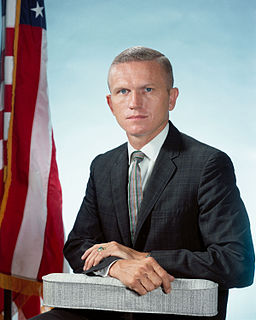A Quote by Gregory Benford
Our moon was born too small to harbor life. It came from the collision of a Mars-sized world into the primordial Earth. From that colossal crunch spun a disk of rocks that condensed into a satellite.
Related Quotes
The Moon is a ball of left-over debris from a cosmic collision that took place more than four billion years ago. A Mars-sized asteroid - one of the countless planetesimals that were frantically churning our solar system into existence - hit the infant Earth, bequeathing it a very large natural satellite.
Moon and Sea You are the moon, dear love, and I the sea: The tide of hope swells high within my breast, And hides the rough dark rocks of life's unrest When your fond eyes smile near in perigee. But when that loving face is turned from me, Low falls the tide, and the grim rocks appear, And earth's dim coast-line seems a thing to fear. You are the moon, dear one, and I the sea.
Most Jupiter-sized planets orbit the mother star in a highly elliptical orbit. This means they will often cross the orbit of any Earth-like planet and fling it into outer space, making life impossible. But our Jupiter travels in a near-perfect circular orbit, preventing a collision with any Earth-like planet, making life possible.
People say, oh we just need charismatic leaders to continue on to Mars. Now we've gone to the moon, of course Mars is next. No. Mars was never, of course, next. It is next if you think we went to the moon because we're explorers, but if you know we went to the moon because we were at war then we're never going to Mars. There's no military reason to do it, to justify the expenditure.


































